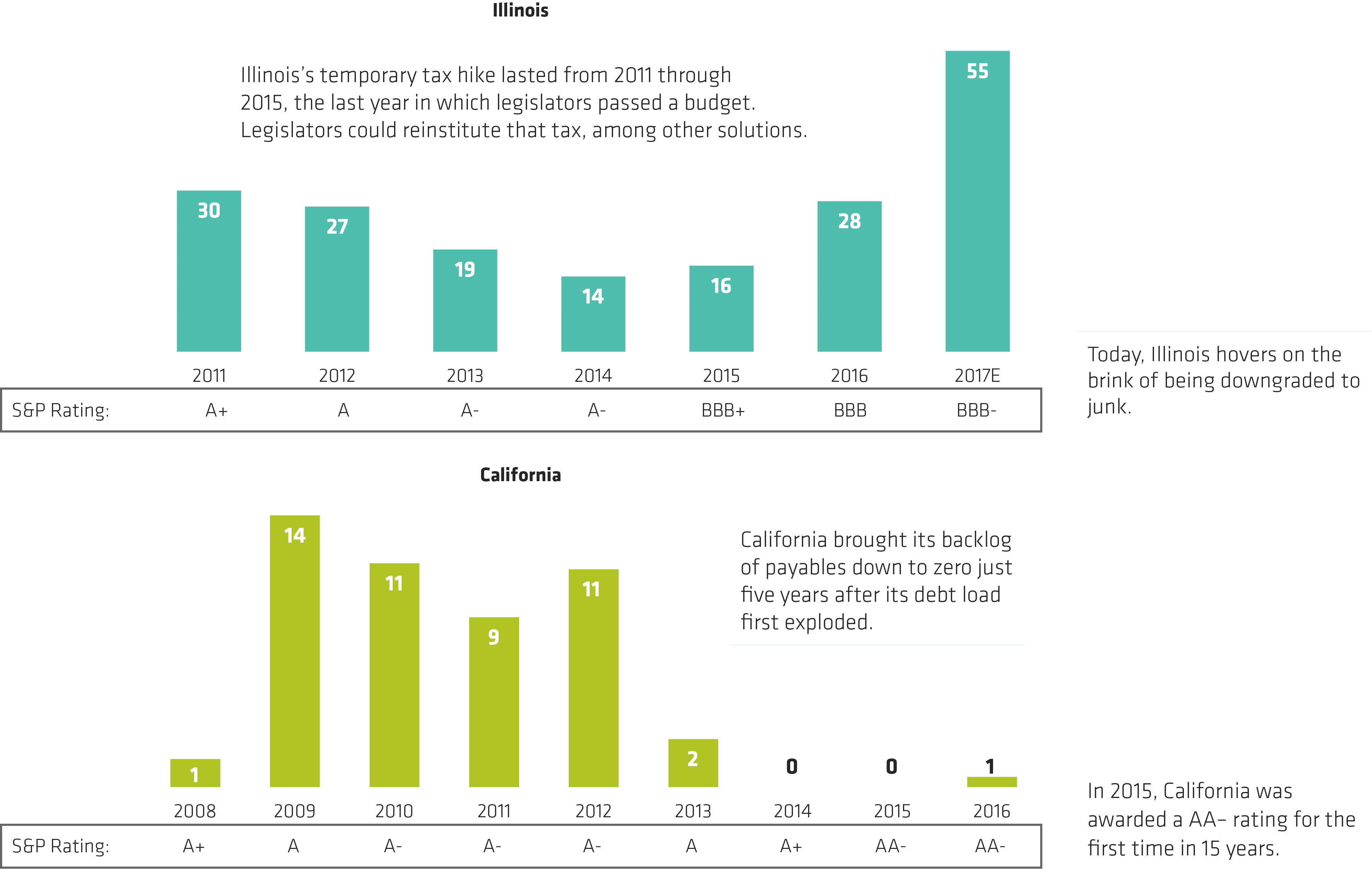Illinois’s fiscal woes, shaped by years of political gridlock, culminated in a rating downgrade to BBB– on June 1. A downgrade to junk is possible. But Illinois could recover its footing, should legislators muster the political will to work together. We know it can be done, because of California’s example.
And Illinois has the financial resources to recover, providing it musters the political will to do so. It could, for example, reinstate the temporary tax hike that was in place from January 2011 through January 2015, the last year in which legislators passed a budget. That tax hike raised personal income taxes from 3% to 5% and corporate taxes from 4.8% to 7%. When the temporary hike expired, personal income taxes fell to 3.75% and corporate taxes to 5.25%. A new version of that tax hike is under consideration by state legislators during the current emergency session. The pending increase is estimated to generate $5 billion in revenue.
The state can also borrow for a portion of the bill backlog. And, it can cut spending. Clearly, however, any of these steps requires cooperation across the aisle.
The upshot, though, is that once cooperation is under way, the control states have over their revenues and expenses becomes very powerful. Witness California. The swift reduction in that state’s debt backlog—accumulated over years of budgetary deadlock—is testament to what can be accomplished once gridlock ends and legislators work together. In 2015, California’s general-obligation bond rating was raised to AA–, its highest level in 15 years.
California’s example could well be the path Illinois follows, should politicians there choose to take it.

